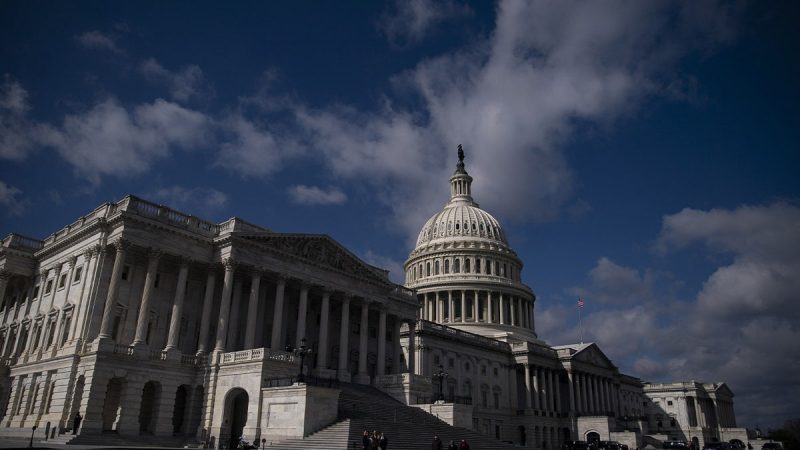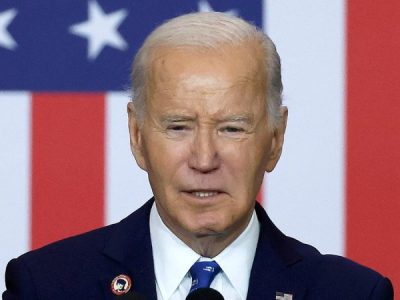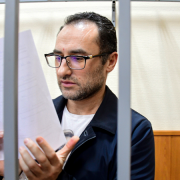
It has been nearly 14 months since my brother-in-law, Omri Miran, was taken hostage by Hamas during the devastating attacks of Oct. 7, 2023. These have been months of anguish and uncertainty for my family and for the families of the 100 individuals still held captive after Hamas kidnapped 251 people from Israel to the Gaza Strip. We have advocated tirelessly with the Israeli government, the U.S. administration, and the international community, but our loved ones remain in captivity.
The recent U.S. elections, which delivered a Republican trifecta and Donald Trump’s return to the White House, have sparked intense debates about what this shift means for America and the world. While other issues are as important for us, the families of hostages, there is only one thing on our minds: How can this new political reality provide the best opportunity yet to break the deadlock and bring the hostages home?
The situation is complex, but at its heart, the release of the hostages hinges on one thing: leverage. For a deal to happen, Israel must feel secure enough to make compromises, Hamas and its backers must feel compelled to negotiate, and the United States must be the guarantor of a credible path forward. Republican-controlled executive and legislative branches may have the tools, relationships, and political capital to make this happen, and there are already signs of a (cautious) change emerging from the talks in Cairo between Egypt and Hamas.
For Israel, the issue of security guarantees is paramount. The Israeli government has consistently emphasized that any ceasefire or hostage release deal must be tied to a broader framework ensuring that Hamas will no longer control Gaza. A post-war Gaza without Hamas is a non-negotiable Israeli demand, yet it requires a robust international framework to ensure implementation. Trump, with his historically close relationship with Israeli Prime Minister Benjamin Netanyahu, has the credibility to push Israel toward the compromises necessary to secure the hostages’ release while reassuring its leadership that America will stand firm on ensuring Hamas’ disarmament and exclusion from Gaza’s future governance, and Israel’s right to re-engage if Hamas and their accomplices violate the ceasefire at any point. Such guarantees should not be limited to the next four years; they should be incorporated into a long-term defense agreement between the U.S. and Israel.
On the other side, Hamas operates under the patronage of powerful sponsors—namely Iran, Qatar, and Turkey. These countries provide Hamas with financial, logistical, and diplomatic support, thus holding considerable sway over its decisions. Under the Biden administration, these relationships were diplomatically acknowledged but never effectively leveraged. While the Biden team showed incredible empathy and determination in advocating for the hostages, internal divisions within the Democratic Party and the fact it had to manage such conflict during an election year undermined its ability to exert consistent and unified pressure on all the players involved.
… the Trump administration’s track record of a transactional approach to diplomacy, paired with a hardline stance on Iran and an unapologetic alliance with Israel, creates a different dynamic.
In contrast, the Trump administration’s track record of a transactional approach to diplomacy, paired with a hardline stance on Iran and an unapologetic alliance with Israel, creates a different dynamic. Iran, Qatar, and Turkey would likely interpret Trump’s demands as less flexible and more consequential than Biden’s. These nations—especially Qatar, which has acted as a mediator—must be compelled to press Hamas into concessions. With Trump in office and a Republican Congress backing him, the U.S. can create a cohesive and credible threat that changes the calculus for Hamas and its sponsors.
Critics will argue that Trump’s return to power brings risks, including escalating regional tensions. However, in this case, Trump’s willingness to take bold, even controversial, actions could lead to a breakthrough. His administration’s Abraham Accords, which normalized relations between Israel and several Arab nations, showcased a capacity to upend long-standing diplomatic impasses through unconventional methods. That same approach could be applied here.
The Biden administration’s efforts should not be overlooked. President Biden personally supported the families of hostages, showing compassion and a deep understanding of our pain. His administration worked diligently, especially for the American hostages, and his leadership has left an indelible mark on the international response to the crisis. However, deep divisions within his party hamstrung his ability to pressure all sides effectively. Progressive voices critical of Israeli policy complicated U.S.-Israeli coordination, while a lack of unified strategy and urgency limited the administration’s engagement with Hamas’ backers.
Now, with Trump’s return, the game has changed. His alignment with Netanyahu and his hawkish stance on Iran makes it possible to align U.S. and Israeli priorities in a way that was more challenging under the previous administration. Moreover, a Republican Congress can provide the unified legislative support needed to back bold executive actions, from increased military aid for Israel to sanctions or diplomatic maneuvers targeting Hamas’ sponsors.
This is not to suggest that the path forward will be simple or painless. The scars left by October 7 will not heal quickly, and the humanitarian crisis in Gaza demands urgent attention. However, ending this cycle of violence requires a solution that addresses all sides’ core concerns. A ceasefire tied to the release of the hostages and a post-war reality in Gaza that excludes Hamas offers a framework that, while challenging, is achievable.
For families like mine, this is not a partisan issue. It is a matter of life and death. We need leadership that can break through the impasse and deliver results. If the Republican trifecta can provide Israel with the guarantees it needs and compel Hamas’ sponsors to act, then this moment must not be wasted.
Omri and 99 more hostages, at least half are believed to be alive by Israel’s intelligence community, are waiting. Their freedom depends on the courage and determination to seize this opportunity.











